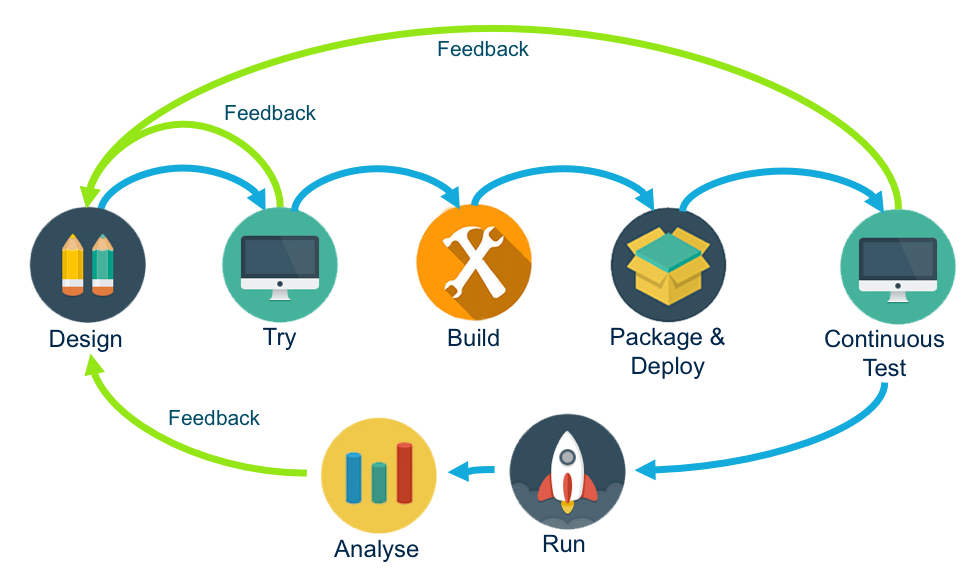API First Design in FastAPI
Pattens and tips for writing better code
Overwriview
- 🛠 What is API First Deign
- 📝 How to do it
- 🎨 Examples
API First Design in FastAPI
Pattens and tips for writing better code
Overwriview
- 🛠 What is API First Deign
- 📝 How to do it
- 🎨 Examples
What is API First Design
An API design-first approach is about describing every API design in an iterative way that both humans and computers can understand—before you write any code. Where API-first is about putting APIs front and center, API design-first is about the process of creating the API itself.

What is API First Design
An API design-first approach is about describing every API design in an iterative way that both humans and computers can understand—before you write any code. Where API-first is about putting APIs front and center, API design-first is about the process of creating the API itself.

What is API First Design
There are three principles of API First Design:
Your API is the first user interface of your application
Your API comes first, then the implementation
Your API is described (and maybe even self-descriptive)

How to do it
Here are the steps:
- Defining the API type
- Single-Purpose APIs: These are APIs that serve a unique and specific purpose, typically derived from an unambiguous need associated with a user journey or use case.
- Multi-Purpose APIs: These APIs are more generic in nature and are meant to satisfy not just one but multiple use cases and scenarios.
- Creating the API definition with its main resources: This step shows how to create an API and define its main resources, parameters, and sample payloads.
- Trying the API mock: This part describes how Apiary’s automatically generated API mocks can be used to satisfy one of the most important steps in API design-first: try an API early in the lifecycle, before the API is actually implemented.
- Pushing the API : Push it to a site so others can start to play with it and give feedback
How to do it in code level
- Design your tables and model if needed
- Define request and response model in
schemas.py - Deinde API
endpointandmethodinrouter.py - Write request and response sample
Example Case for Countrypedia
We’ll build an apis here and skip the database design part, GET /countrypedia/countries: Returns list of countries supported by CountryPedia For each countries
- create data model in
schema.py, and write some sample response - create router group and define the endpoint in
router.py - check Swagger online
Example Case for Countrypedia
create single data model in schema.py, and write some sample response
class CountryResponse(BaseModel): alpha_code: str = Field(name="alpha_code",description="The alpha_code code for the country",max_length=300) name: str = Field(title="name",description="The English name for the country") name_cn: str = Field(title="name_cn", description="The Chinese name for the country") flag: str = Field(title="flag", description="The flag for the country") class Config: schema_extra = { "example": { "alpha_code": "ALA", "name": "Aland lslands", "name_cn": "奥兰群岛", "flag": "", } }class CountryResponse(BaseModel): alpha_code: str = Field(name="alpha_code",description="The alpha_code code for the country",max_length=300) name: str = Field(title="name",description="The English name for the country") name_cn: str = Field(title="name_cn", description="The Chinese name for the country") flag: str = Field(title="flag", description="The flag for the country") class Config: schema_extra = { "example": { "alpha_code": "ALA", "name": "Aland lslands", "name_cn": "奥兰群岛", "flag": "", } }
Example Case for Countrypedia
create list data model in schema.py, and write some sample response
class CountriesResponse(BaseModel): __root__: list[CountryResponse] class Config: schema_extra = { "example": { "total": 2, "page_number": 0, "page_size": 10, "rows": [ { "alpha_code": "ALA", "name": "Aland lslands", "name_cn": "奥兰群岛", "flag": "", }, { "alpha_code": "ATG", "name": "Antigua and Barbuda", "name_cn": "安提瓜与巴布达", "flag": "", }, ], } }class CountriesResponse(BaseModel): __root__: list[CountryResponse] class Config: schema_extra = { "example": { "total": 2, "page_number": 0, "page_size": 10, "rows": [ { "alpha_code": "ALA", "name": "Aland lslands", "name_cn": "奥兰群岛", "flag": "", }, { "alpha_code": "ATG", "name": "Antigua and Barbuda", "name_cn": "安提瓜与巴布达", "flag": "", }, ], } }
Example Case for Countrypedia
create endpoint in the router
router = APIRouter( prefix="/countrypedia", tags=["countrypedia"], ) @router.get( "/countries", summary="Returns list of countries supported by CountryPedia", description=""" Returns list of countries supported by CountryPedia For each countries: Fields: alpha code, name, name_cn,flag, list of supported regions (others tbd) """, response_model=Response[PaginationData[CountriesResponse]], ) async def get_countries(user_id: int = Depends(get_user_id)): passrouter = APIRouter( prefix="/countrypedia", tags=["countrypedia"], ) @router.get( "/countries", summary="Returns list of countries supported by CountryPedia", description=""" Returns list of countries supported by CountryPedia For each countries: Fields: alpha code, name, name_cn,flag, list of supported regions (others tbd) """, response_model=Response[PaginationData[CountriesResponse]], ) async def get_countries(user_id: int = Depends(get_user_id)): pass
Try it by yourself
- code can be found at https://gitlab.com/rocketg/service/sample/-/tree/countrypedia

Thank You!
